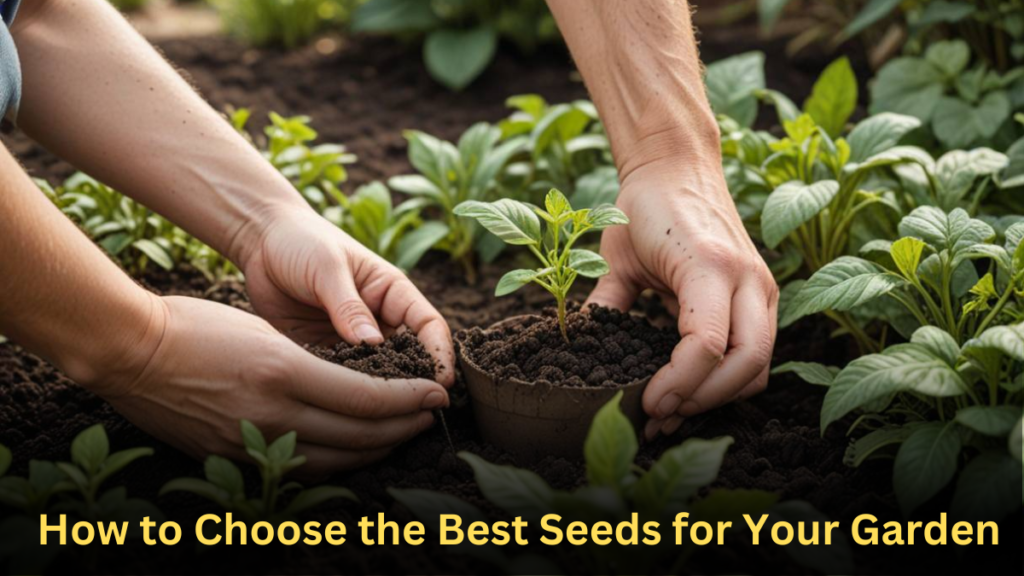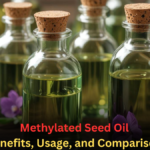If there is one thing that determines whether one gets a prolific harvest or a disappointing one, it is the quality of seeds. Whatever level you are at in gardening, you want to make sure you go for the right seed type. Such a guide will take an in-depth look at the importance of seed reviews, their interpretation, and the things you’ll want to consider while selecting seeds for your garden.
Why Seed Reviews Matter
When it comes to gardening, the seeds you choose will be the foundation of your entire project. Seed reviews serve a very useful purpose in updating your knowledge about the quality, rates of germination, and overall performance of different varieties of seeds. Being presented with many options puts pressure on which type of seed a person can plant. That is where the seed reviews come in-the real-life experiences other gardeners go through with the same seeds that you plan on using.
What to Look For in Seed Reviews

Reading through the reviews for seeds, look out for the following:
- Germination Rate: Of all factors concerning any seed, the germination rate may be the most critical. It is the percentage of seeds that have been in a position to sprout and grow into healthy, thriving plants. High germination rates reflect good seed quality while poor rates reflect low quality or bad storage conditions.
- Plant Health: People usually review seeds in terms of what generally healthy and robust plants came out of them. Listen for praise such as good growth, disease resistance, and strength through fluctuating weather conditions.
- Yield: A good harvest is any gardener’s ultimate achievement. Reviews about the seeds that yield high are good indicators of the seeds being productive. On the other hand, when there are too many reviews talking about low yields, then you may have to change your options.
- Flavor and Quality: For edible plants, the quality and taste of the produce is utmost important. Reviews on the seeds that outline special flavor or high quality are the exact kind gardeners interested in growing food would be looking for.
- Adaptation: Seeds from some varieties will thrive more in a certain type of climate or setting. Reviews posted by gardeners of your region can give good insight into how well a particular seed variety will perform with your local climate and weather.
Seeds Types and Reviews
There are a few different types of seeds, each with different attributes – understanding the specific attribute differences will allow you to make an informed decision.
Heirloom Seeds
They are heirlooms, passed down through generations and often cherished for rich flavors and unique characteristics. Reviews of seeds for heirlooms generally relate to their traditional appeal, taste, and the story behind the seed. Gardeners that appreciate history and variety favor heirlooms.
Pros:
Rich in flavor and unique characteristics
Often open-pollinated; you can save seeds for future use
Cons:
- May lack the disease resistance quality inherent in hybrid ones.
- More vulnerable to either favorable or adverse environmental conditions.
Hybrid Seeds
Hybrid seeds are produced due to cross-pollination between two different plant varieties with the purpose of carrying desirable particular features such as resistance to certain diseases or higher yielding. The majority of hybrid seed reviews talk about their dependability and performance during gardening.
Pros:
- Generally more resistant to diseases.
- Scientifically engineered for high yields and uniform growth pattern.
Cons:
- Seeds cannot be saved for future planting as they may not produce true to type
- Sometimes lack the rich flavors of heirlooms
Organic Seeds
Organic seeds are grown without the use of synthetic pesticides or fertilizers, making them a popular choice for the eco-conscious gardener. In reviews on organic varieties, the most important points are the quality of the plants and the ethical or environmental merits.
Pros:
Organic seeds are described by the following features:
- They are grown sans the use of synthetic chemicals.
- They are normally associated with sustainable farming practices.
Disadvantages: - more expensive than non-organic seeds
- less accessible compared with conventional seeds
Calming Colors for Dogs: How Calming 3 Ultimate Hues Can Soothe Your Dog’s Anxiety
Where To Get Dependable Seed Reviews

As there is lots of information over the internet, looking for a dependable seed review can be truly overwhelming. Here is a list of some dependable sources to refer to:
- Online Gardening Communities: Websites such as GardenWeb, Houzz, and gardening forums on Reddit-all are great places for real-world reviews from fellow gardeners. Many communities have threads or sections dedicated to sharing the various members’ experiences with different seed varieties.
- Seed Company Websites: Some seed companies have a place for customer reviews right on the product page. While useful, remember that most often these are moderated by the company and may not tell the whole story. Pay closer attention to companies that have a history of transparency and honesty in their reviews.
- YouTube and Gardening Blogs: A number of gardening enthusiasts make a point of recording their experiences and reviews on platforms such as YouTube or personal blogs. Video reviews will be much more helpful since they often show everything starting from planting to harvest.
- Local Gardening Clubs: If you prefer your advice face to face, find a local gardening club near you. Members tend to be very willing to share their successes and failures with different varieties of seeds, affording you first-hand, region-specific advice.
Seed Reviews

If you’ve had success-or challenges-with a particular variety of seed, think about giving back to the gardening community by writing a review of that seed. Here are some tips that will help make your review as useful as possible:
- Be Specific: Add in location, soil type, and climate since those really impact seed performance. The more specific the information, the easier it is for another gardener to tell how the seeds will perform in their own conditions.
- Include Growth Details: Mention germination rate, growth rate, and issues encountered such as pests or diseases. Such information gives other gardeners valuable insight.
- Discuss Yield and Quality: If reviewing edible plants, talk about the yield and flavor of produce. If you’re reviewing ornamental plants, talk about their appearance and overall health.
- Add Photos: In gardening, a photo is worth so much more than words. Add photos of your plants in different stages of growth as references for readers.
Conclusion
In the world of gardening, choosing seeds is probably one of the most major ways to ensure a successful crop. To that end, seed reviews are important in that you learn from your fellow gardeners what kind of seeds are best to plant. By knowing what to expect from reading seed reviews, you will have ideas about sources you can trust for information so that you confidently pick the right seeds for your garden.
Whether one grows heirloom varieties, hybrids, or organic seeds, taking a little extra time to read and write seed reviews can make all the difference in the world for gardeners. So, next time you are getting ready to plant, remember to check out some seed reviews-they may just point you toward the best harvest you have had.



Pingback: Methylated Seed Oil - 7 Ultimate Tips By Skin Care Experts - Solvinsight